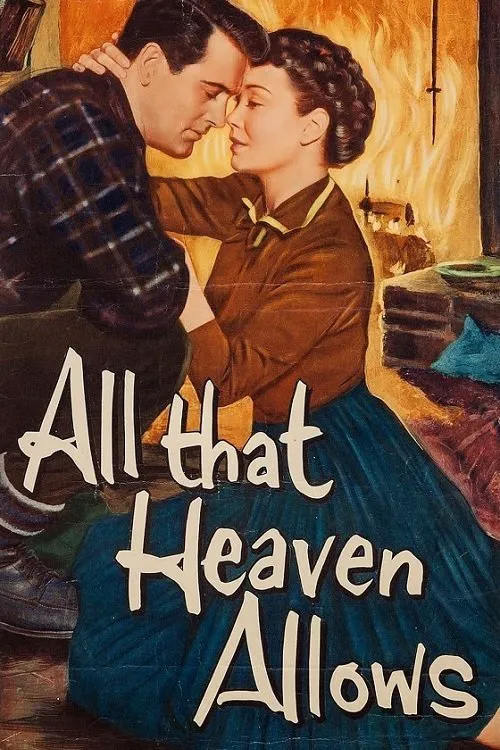All That Heaven Allows

Plot
Set in 1950s small-town America, All That Heaven Allows tells the poignant love story of Cary Scott, a successful and beautiful widow, and Ron Kirby, her gentle and unassuming gardener. The film, directed by Douglas Sirk and released in 1955, masterfully explores the societal divisions and restrictive norms of the time. Cary Scott, played by Jane Wyman, is a stunning and confident woman with a comfortable life built upon wealth and social standing. As the recently widowed matriarch of a prominent family, she has everything materialistic and social she could desire. However, beneath the surface, Cary feels stifled and disconnected, missing the passion and intimacy she once shared with her late husband, Mel. Enter Ron Kirby, the charming and quiet gardener played by Rock Hudson, who is tasked with tending to Cary's beautiful and meticulously manicured garden. Unassuming in nature, Ron radiates a sense of serenity and contentment, qualities that resonate with Cary as she navigates the monotony of her upper-class life. Over time, the unlikely couple discovers an undeniable connection, their relationship blossoming into romance that transcends their disparate social backgrounds. However, as soon as their secret love affair is discovered by Cary's family and social circle, tensions rise and expectations are laid bare. Cary's children, Peg and Harvey, cannot fathom their mother marrying someone of a lower social class, a fact that underscores the rigid societal norms dictating acceptable behaviors in 1950s America. Moreover, the country club friends, who have always regarded Cary as a pillar of excellence, cannot comprehend her desire to step down from her esteemed position in pursuit of love. Cary, faced with opposition from her loved ones, must navigate a precarious path of choosing between conformity to societal expectations and fulfilling her heart's desire. As she struggles with the weight of societal pressure, Cary is met with resistance at every turn, confronting the stark reality of a world that refuses to accept the unconventional. Throughout the film, Douglas Sirk's direction and the performances of the cast, particularly Rock Hudson and Jane Wyman, convey the raw emotion and vulnerability that underlies Cary's predicament. The cinematography captures the lush beauty of Cary's estate, juxtaposing her exquisite garden with the confines and restrictions that define her world. The score, too, masterfully complements the mood of the film, weaving together melancholy passages with moments of tender intimacy to illustrate the complexity of Cary's emotions. One of the most striking aspects of the film is its commentary on the restrictive social norms that govern a woman's place in 1950s America. As Cary grapples with her feelings for Ron, she confronts the societal expectations that dictate her behavior, reinforcing the idea that a woman's identity is inextricably tied to her marital status. The film poignantly explores the tension between individual desire and societal pressure, ultimately raising questions about the limits imposed on women in a patriarchal society. Through the characters of Cary and Ron, the film offers a nuanced portrayal of a love that defies convention. Their bond, forged in the midst of societal disapproval, underscores the notion that love knows no bounds, transcending social class distinctions and redefining what is considered acceptable. In the end, as Cary comes to terms with her decision, she musters the courage to defy the expectations of her loved ones and social circle. Emulating her love for Ron, she embarks on a path that allows her to forge her own way, embracing her newfound sense of self and the passion that has long been absent from her life. As the final scenes unfold, it becomes evident that Cary and Ron's love story is one of liberation, a testament to the human spirit's capacity for self-actualization. Through their narrative, All That Heaven Allows offers a poignant critique of the restrictive social norms that govern individual lives, ultimately reaffirming the power of love to transform and transcend even the most challenging circumstances.
Reviews
Recommendations




